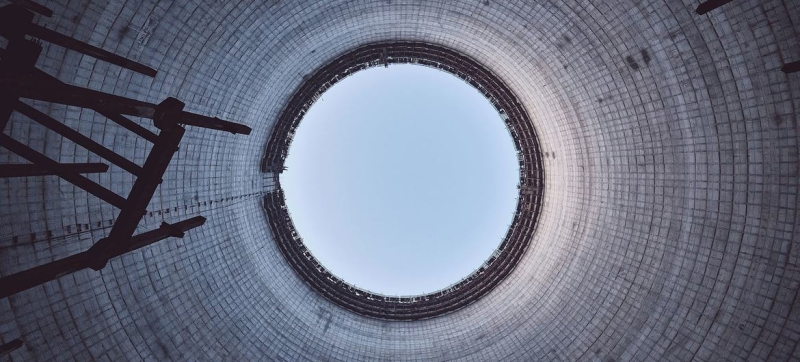
Cooling tower at Chernobyl nuclear power plant. IAEA to expand aid to Ukraine Peace and Security
The International Atomic Energy Agency (IAEA) plans to expand its aid to Ukraine and take a more active stance in protecting the country’s critical energy infrastructure status to ensure nuclear safety.
Agreements with Ukrainian President
The decision follows a series of missile attacks that either directly caused several nuclear power reactors to be disconnected from the grid or resulted in instability in the national electricity grid, IAEA Director General Rafael Mariano Grossi said after a meeting with Ukrainian President Volodymyr Zelensky in Kyiv today.
A team of IAEA experts will soon visit some of the damaged Ukrainian power distribution substations, which have been identified as important for nuclear safety. The experts will assess the situation at these sites and report their findings to the organization’s headquarters.
“The safe operation of nuclear power plants depends on a stable and reliable connection to the power grid. The war makes the situation increasingly vulnerable and potentially even dangerous in this regard. We agreed with President Zelenskyy that the IAEA will expand the scope of its activities to help prevent a nuclear accident during a conflict and to look more closely at this important aspect of nuclear safety,” Grossi said.
“Our experts will apply the Agency’s expertise in nuclear industrial safety and critical infrastructure protection to the assessment of these substations,” he added.
Grid attacks a serious problem for nuclear power plants
IAEA teams are already present at all Ukrainian nuclear power plants and help maintain nuclear safety.
Increased stress on Ukraine’s energy infrastructure over the past six months has led to grid instability, posing serious challenges for Ukraine’s nuclear power plants. Access to reliable off-grid electricity is one of the seven key principles for maintaining nuclear security during armed conflict outlined by Grossi in March 2022.
On 26 August, strikes on Ukraine’s energy infrastructure caused severe power outages and led to the temporary shutdown or disconnection of reactor units at the Rivne and South Ukraine NPPs, one of which has not yet returned to full operation. The external power supply situation at the Khmelnitsky and Chernobyl nuclear power plants was also affected.
The Zaporizhzhya Nuclear Power Plant (ZNPP) recorded eight complete power outages, forcing it to rely on diesel generators.
“The increased vulnerability of Ukraine’s energy infrastructure raises deep concerns about nuclear safety at Ukraine’s nuclear power plants, as we saw last week when several reactors stopped operating due to damage to energy infrastructure in other parts of the country,” Grossi said.
The IAEA chief will visit Zaporizhzhya this week for the fifth time since the conflict began to assess the situation at the plant, which he said was unstable.
